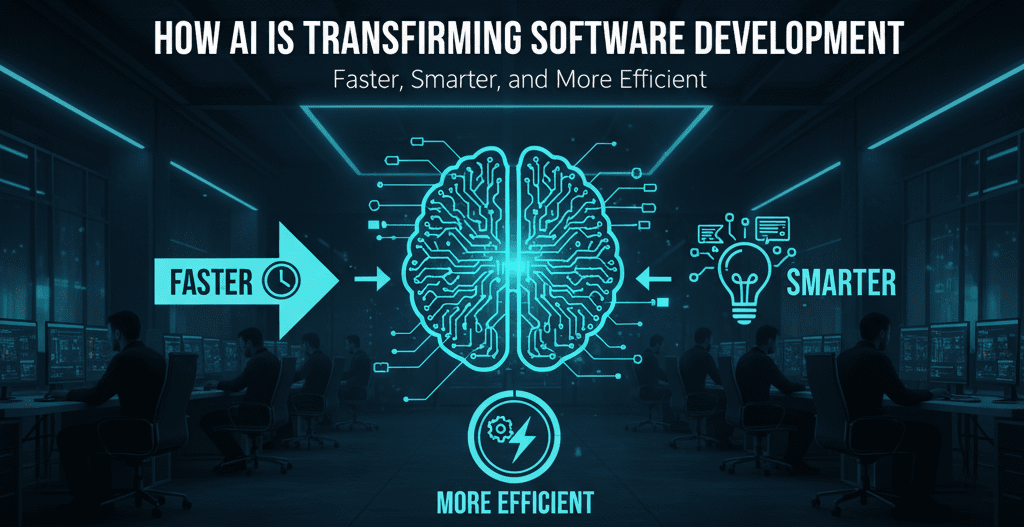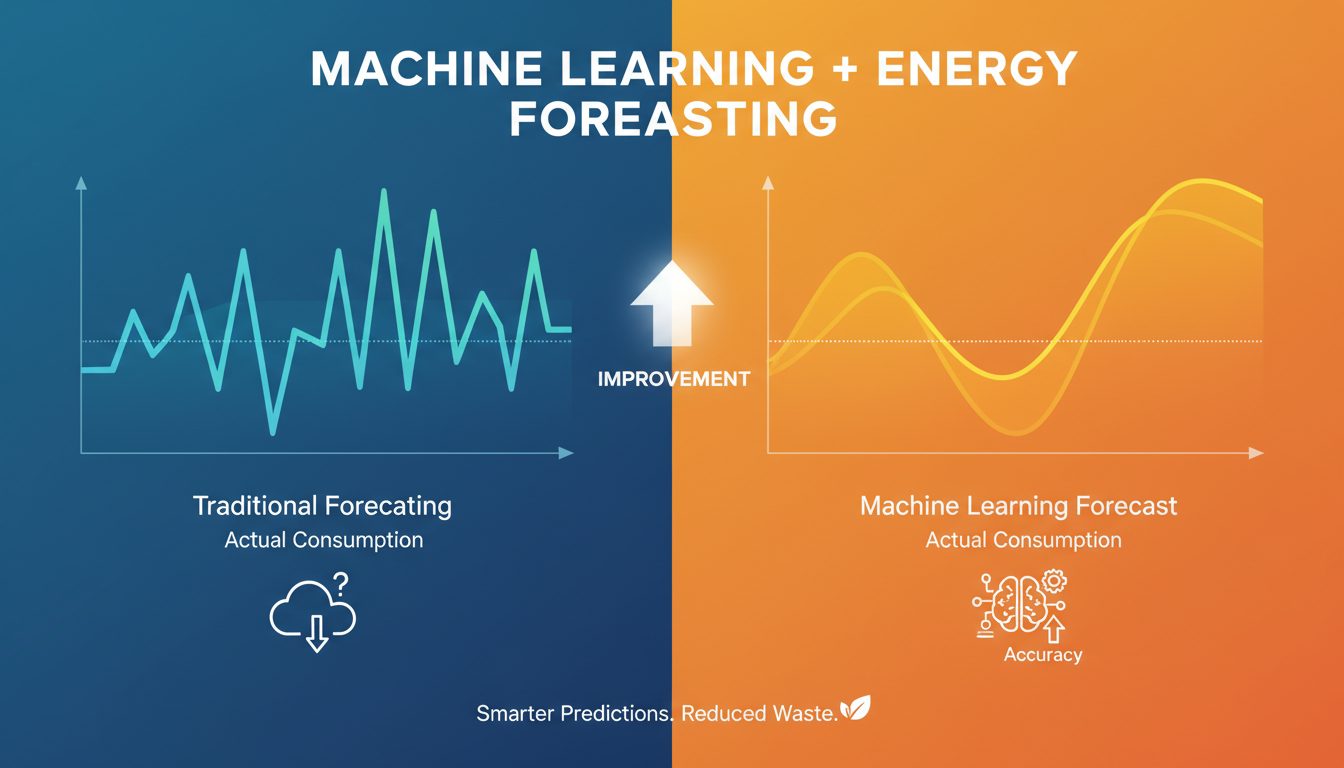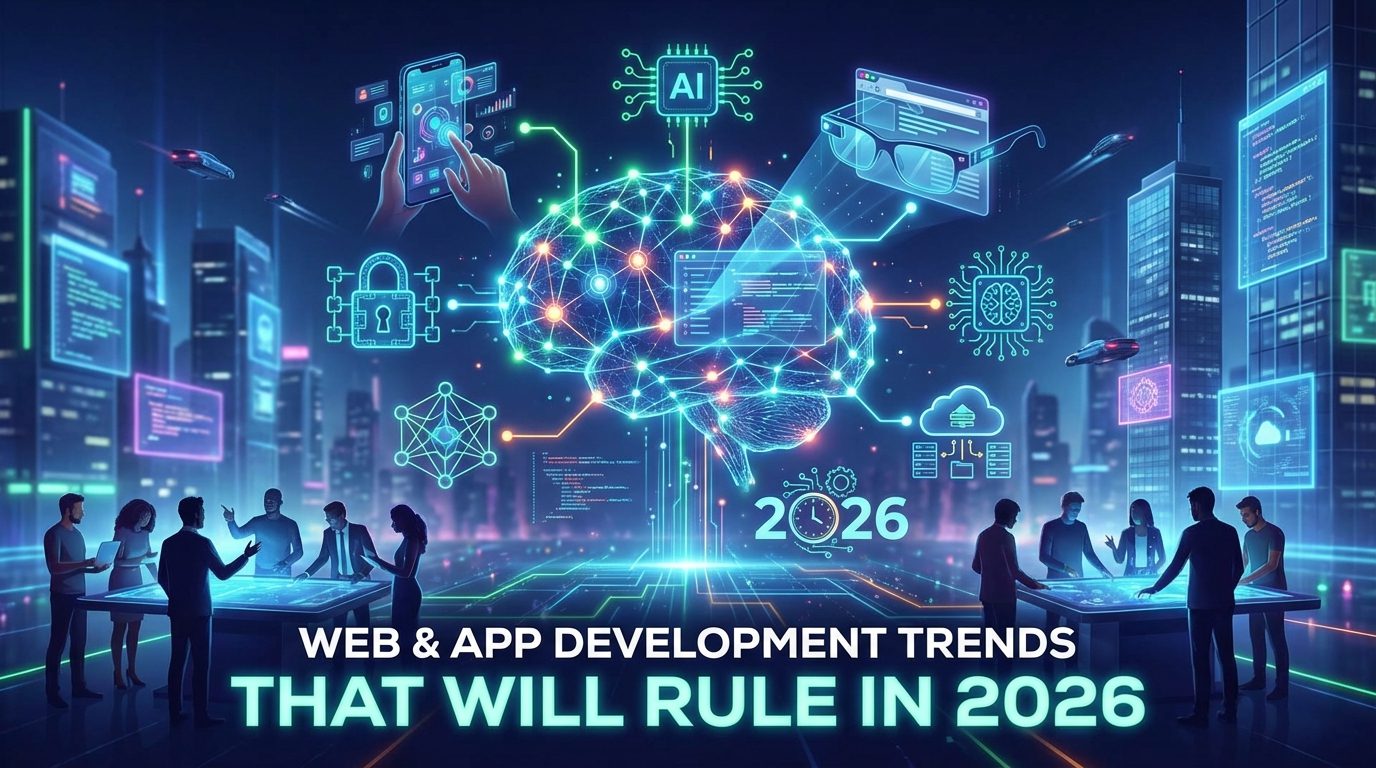Artificial Intelligence (AI) is no longer a futuristic concept—it is actively transforming industries, and software development is at the forefront of this revolution. The integration of AI into software development processes is reshaping how developers write code, debug applications, and deliver high-quality software faster than ever before. Companies that leverage AI-driven tools are not just improving productivity; they are redefining the future of technology innovation.
Faster and Smarter Coding
One of the most significant benefits of AI in software development is its ability to assist developers in writing code more efficiently. AI-powered coding assistants can suggest code snippets, autocomplete functions, and even detect potential errors before they occur. This reduces the time spent on repetitive tasks and allows developers to focus on solving complex problems. Tools like GitHub Copilot, OpenAI’s Codex, and other AI-driven platforms are already helping developers write cleaner, error-free code, accelerating the development lifecycle.
Real-Time Error Detection and Debugging
Debugging is often one of the most time-consuming aspects of software development. AI algorithms can analyze vast amounts of code in real-time, detect bugs, and even propose solutions. This predictive capability allows developers to fix issues faster and reduces the likelihood of critical errors making it into production. By leveraging AI for debugging, companies can ensure higher-quality software and minimize downtime caused by bugs or system failures.
Automated Testing and Quality Assurance
AI also revolutionizes software testing and quality assurance. Traditionally, testing requires manual effort to identify issues, validate functionality, and ensure performance. AI-driven testing tools can automate these processes, running thousands of test cases in a fraction of the time it would take humans. Moreover, AI can learn from previous testing patterns, predict potential failure points, and optimize testing strategies for maximum efficiency. This leads to more reliable software, faster release cycles, and reduced operational costs.
Enhancing Collaboration and Productivity
Beyond coding and debugging, AI enhances team collaboration and productivity. AI-powered project management tools can analyze workflows, predict bottlenecks, and suggest process improvements. Developers can receive intelligent recommendations on task prioritization, resource allocation, and project timelines. By reducing administrative overhead and automating mundane tasks, AI allows software teams to focus on creativity, innovation, and delivering business value.
AI-Powered Decision Making
Decision-making in software development, from choosing the right architecture to scaling applications, can be complex. AI can analyze data from multiple sources, predict performance trends, and provide actionable insights. This enables development teams to make informed decisions faster, mitigating risks and improving project outcomes. Companies leveraging AI for decision support gain a competitive advantage in the market by delivering smarter and more efficient software solutions.
The Human + AI Collaboration
While AI is transforming software development, it is not replacing developers. Instead, AI complements human expertise. Developers focus on creativity, problem-solving, and strategic thinking, while AI handles repetitive, time-consuming, or error-prone tasks. This collaboration between human intelligence and artificial intelligence is shaping the future of software development, allowing organizations to innovate faster while maintaining high standards of quality.
Scalability and Innovation
As software applications become increasingly complex, scalability is a critical concern. AI enables developers to design systems that can adapt, scale, and optimize performance automatically. From cloud-based solutions to large-scale enterprise software, AI helps ensure that applications remain robust, responsive, and efficient. Moreover, AI fosters innovation by enabling experimentation with new algorithms, frameworks, and development methodologies without compromising speed or reliability.
Challenges and Considerations
Despite its benefits, integrating AI into software development comes with challenges. Developers must ensure that AI suggestions are accurate and aligned with project requirements. There is also a need for ethical AI usage, data privacy, and continuous monitoring to prevent unintended errors or biases in the code. Proper training, governance, and integration strategies are essential to maximize AI’s potential while minimizing risks.
Conclusion
AI is revolutionizing software development in ways that were unimaginable just a few years ago. From smarter coding and automated testing to real-time debugging and AI-driven decision-making, the technology is making software development faster, more efficient, and more reliable. Organizations that adopt AI in their development workflows gain a competitive edge, delivering high-quality solutions while reducing time-to-market and operational costs. The future of software development is a collaboration between human expertise and AI intelligence—an era where innovation, efficiency, and scalability are seamlessly combined.
As AI continues to evolve, its role in software development will only grow stronger, making it an essential tool for developers and organizations striving to stay ahead in the fast-paced world of technology. Embracing AI today is not just about efficiency—it’s about shaping the future of software and innovation.







